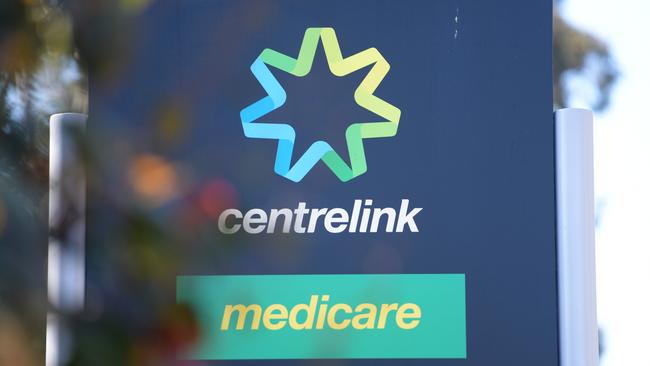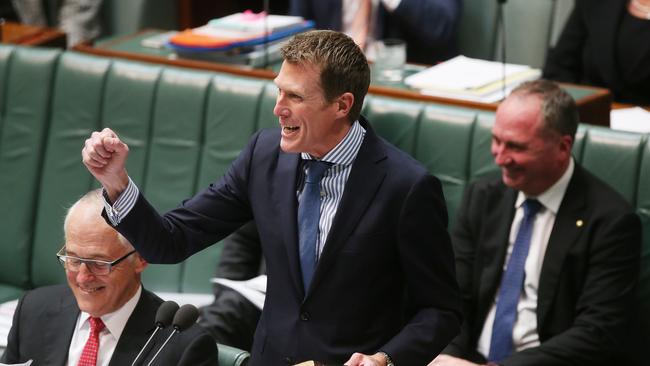Warning over booming Australian welfare bill
FRIGHTENING figures put Australia’s total lifetime welfare bill at a whopping $2.1 trillion for all those currently on benefits.

VIC News
Don't miss out on the headlines from VIC News. Followed categories will be added to My News.
- The chronic cost of our lifelong bludgers
- Welfare reform aims to ease burden on workers
- Welfare is not a right
TAXPAYERS are coughing up $300,000 a minute for a welfare bill that has soared $40 billion in 10 years.
The Herald Sun can reveal that the total lifetime welfare bill for all those currently receiving benefits has been estimated at $2.1 trillion.
The frightening figure emerged as federal government debt reached a record $506 billion yesterday, renewing concerns about the public cost of supporting those who game the system or are locked into a cycle of welfare dependency.
Remarkably, anyone currently receiving government help to study is expected to be on welfare for nearly half of the rest of their lives, costing taxpayers an average of $247,000.
Startling figures in two new reports from the Department of Social Services and the Australian Institute of Health and Welfare highlight the challenge of reining in welfare costs.
Last year, more than 733,000 people received unemployment benefits, costing $10 billion, up from $5.6 billion a decade ago.
The number of students receiving the Youth Allowance dropped by almost 10 per cent in two years, saving $400 million.
The Herald Sun revealed earlier this year that more than 100,000 jobseekers who were on the dole for at least five years had cost taxpayers $15 billion over the past decade.
The government has already found $30 billion in welfare savings by toughening compliance measures for dole recipients, as well as by adjusting pension and family tax payments.

Social Services Minister Christian Porter said: “My job as Minister is to ensure taxpayer funds are spent on helping those who actually need it, and that we aren’t borrowing money to fund the welfare system of our time, as this just forces our children to pay it off through higher taxes in the future.”
The $2.1 trillion bill, detailed in the Department of Social Services annual report, was calculated by PricewaterhouseCoopers based on modelling of how people typically moved through the welfare system.
Mr Porter said welfare spending made up almost a third of the federal budget, and the government was now handing out benefits worth $430 million a day.
The nation’s total annual welfare bill of $157 billion now accounts for 9.5 per cent of Gross Domestic Product, according to the Australian Institute of Health and Welfare, up from 8.6 per cent a decade ago.
The DSS report revealed two-thirds of people on the dole managed to get off it within a year, while 80 per cent of students were no longer receiving any benefits 12 months after they stopped receiving the Youth Allowance.
Mr Porter said the growth of those two payments under Labor was 13.5 per cent, which was “entirely unsustainable” and had been reduced, meaning “more people in jobs and less on welfare”.
Opposition employment spokesman Brendan O’Connor said last week Labor was “up for the conversation” about the support for job seekers.
“We want to be making sure that people move from welfare to work in a genuine way,” he said.
Opposition social services spokeswoman Jenny Macklin said the reports highlighted a “serious problem with underemployment”.
She said 10 per cent of workers wanted more hours but couldn’t get them, while a quarter of the unemployed had been out of a job for more than a year.
Last year, 65.8 per cent of those aged over 65 received a pension, down from 69 per cent due to changes to the assets test, but the total pensions bill still climbed to $44 billion.
The Australian Institute of Health and Welfare noted that while Australia’s spending had risen sharply, our welfare-to-GDP ratio was still lower than the OECD average. European countries, which limit means testing, typically spend more.



